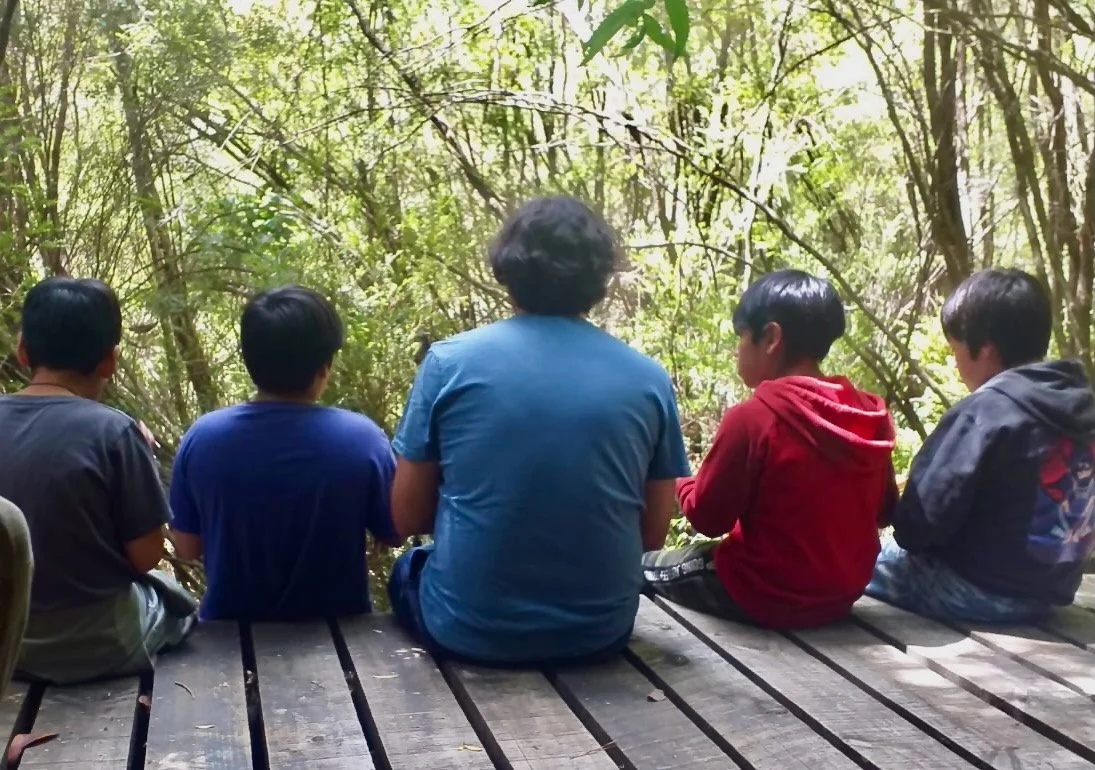Connection with Nature
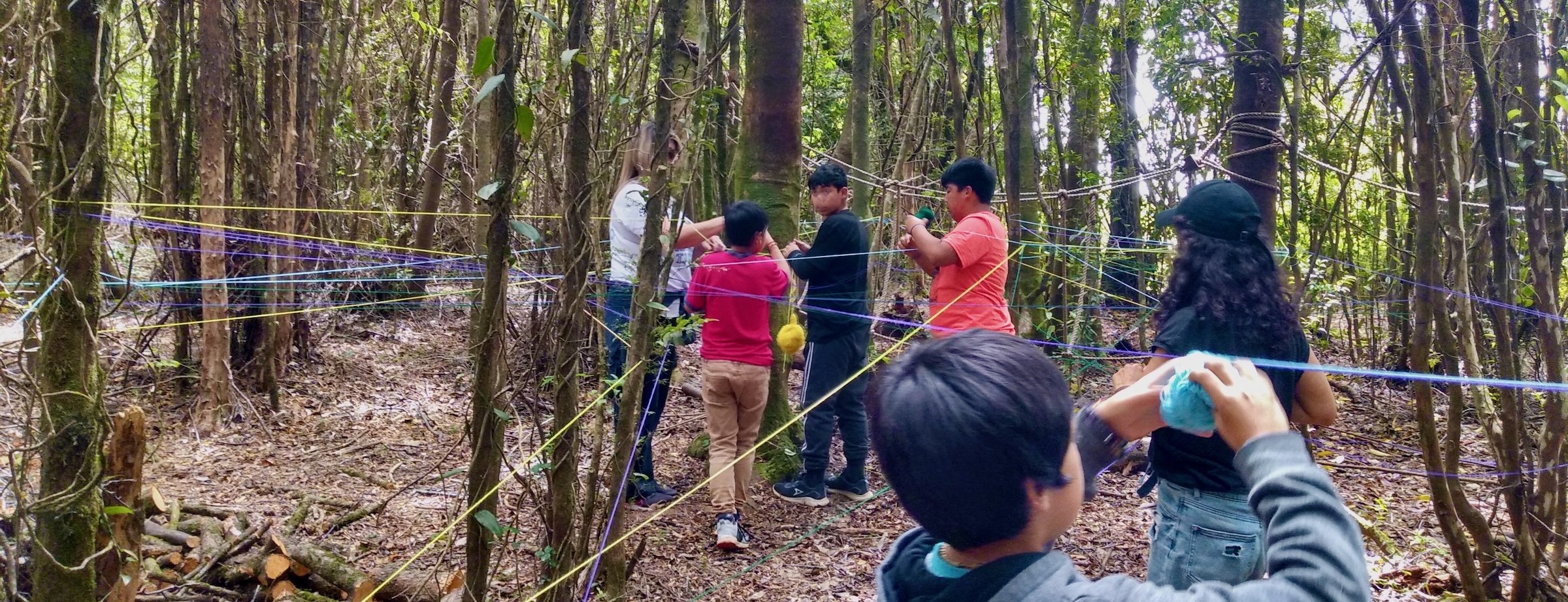
Kids are losing touch with nature, and their mental health is suffering because of it.
Children today have less contact with the natural world than 50 years ago and has resulted in being less connected to Nature. In some cases, the disconnection is so chronic that kids are developing phobias towards the outdoors. For example, phobia of getting dirty, phobia of seeing insects, phobia of being in less than perfect weather conditions. Phobia of the outdoors is known as ecophobia. Ecophobia and the spending of countless hours in front of screens are making kids more sedentary. This new societal reality is worrisome because empirical research is now showing that contact with Nature is an extremely important classroom, not only to create strong values towards Nature, but also to develop emotional, personal and social intelligence and well-being in children (1).
According to a Harvard University Study comparing six nations (2),
“Socioemotional education is underdeveloped in some Latin American education systems.”
Nature, a remedy for the planet and ourselves
One of our core programs serves children from under-resourced communities, including those in residential care, Indigenous communities, and low-income families who often face significant adversity and instability. These children frequently experience emotional and psychological challenges stemming from trauma, neglect, or disrupted family environments.
Through a nature-based socioemotional learning approach, we create safe, nurturing spaces for conversation, exploration, art, meditation, and play. Grounded in trust and connection, this program helps children develop essential life skills, including emotional regulation, self-esteem, decision-making, and healthy relationship-building. By engaging with peers and supportive adults in meaningful outdoor experiences, participants develop resilience, confidence, and a stronger sense of self, laying the foundation for healing and long-term well-being.
The sounds and feelings of the forest
For a group of kids in foster care, time spent in the forest with our team and a group of local partners meant new discoveries, about nature and about themselves.
“After all that I have been learning in these programs, I want to follow a career in environmental science”
— The reflection of an 8th grader after his second year with us. It surprised us all, because the year before, he expressed a strong sense of hopelessness and distance towards the environment.
Gallery:

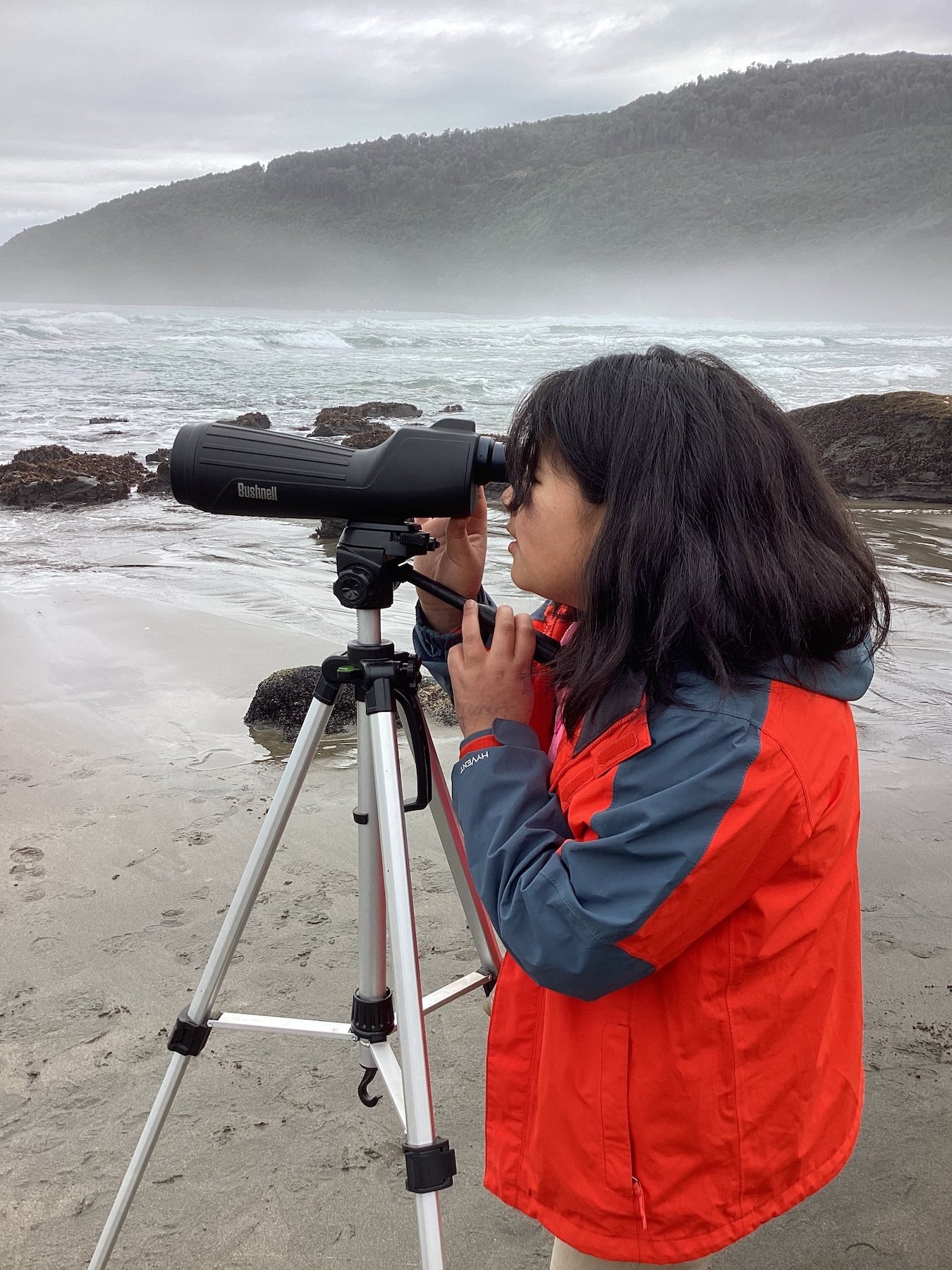
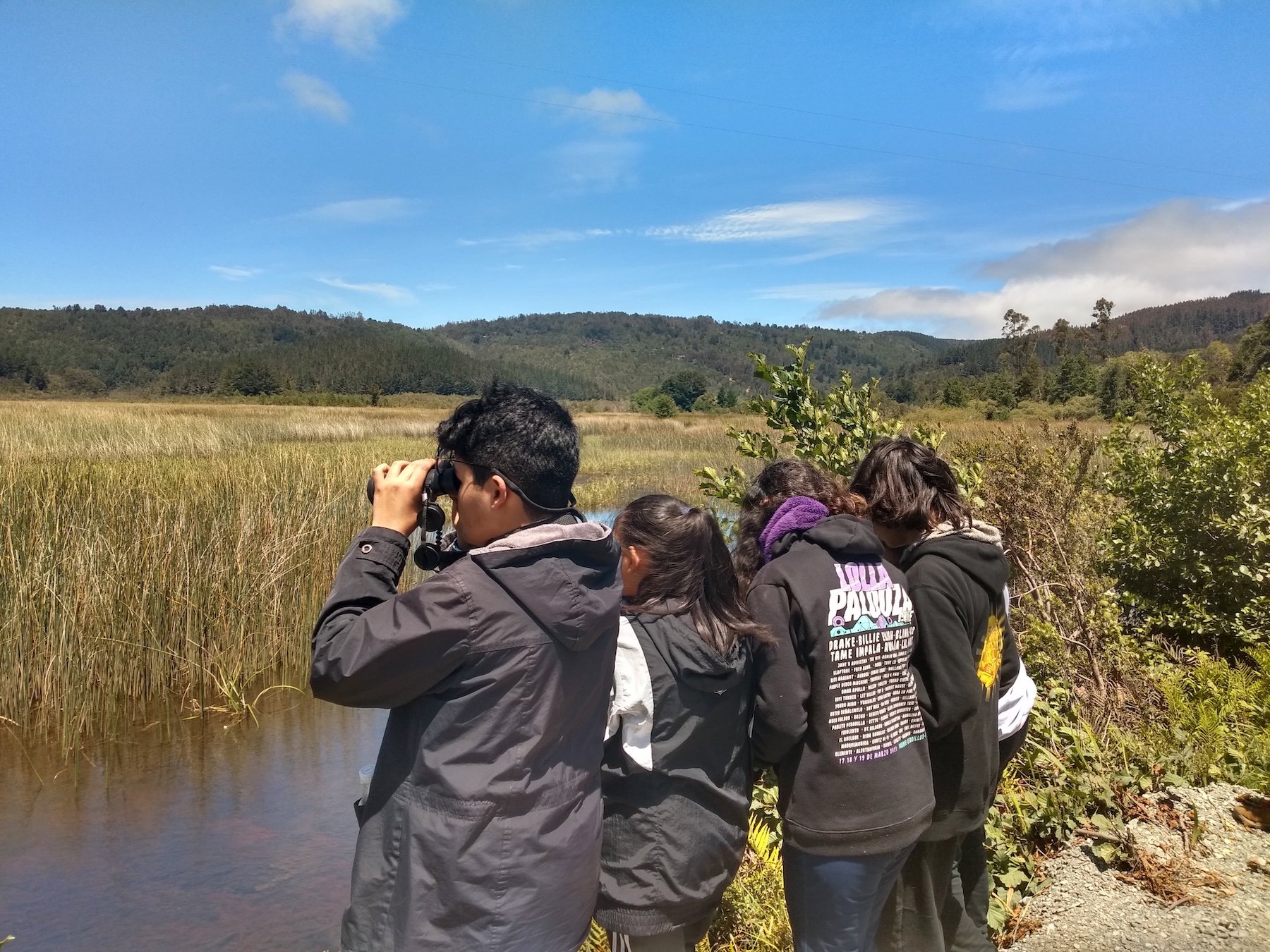

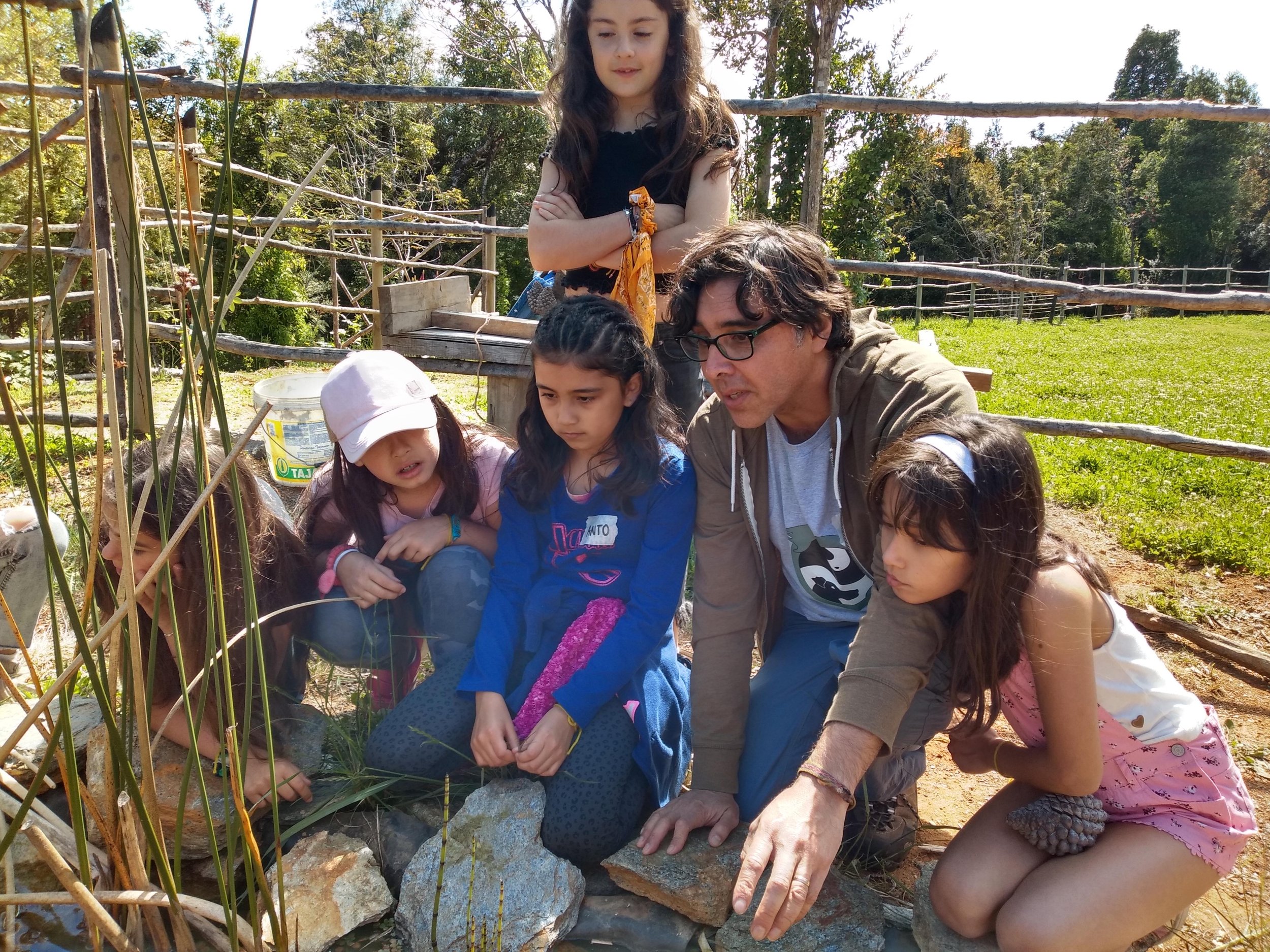






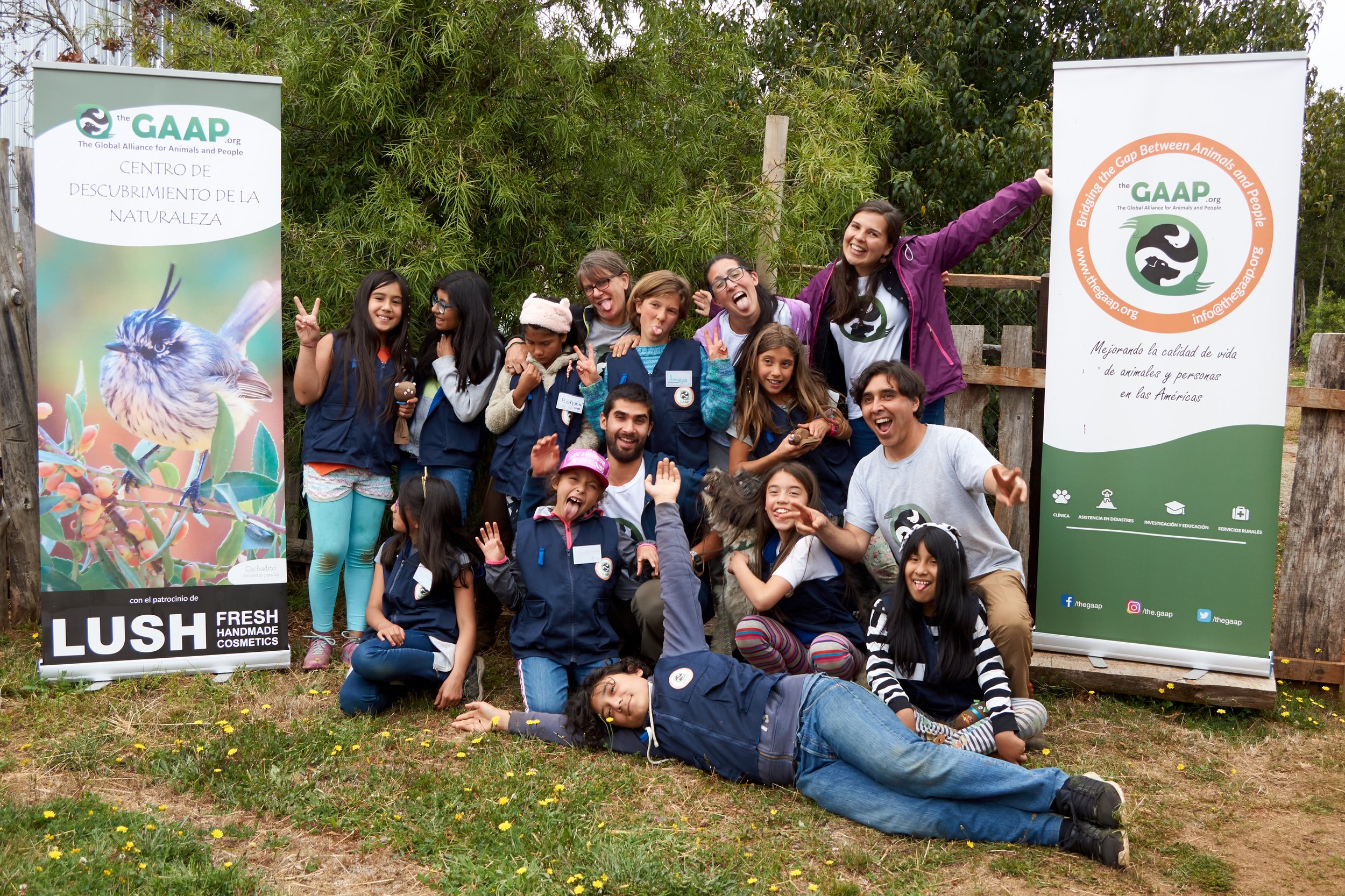

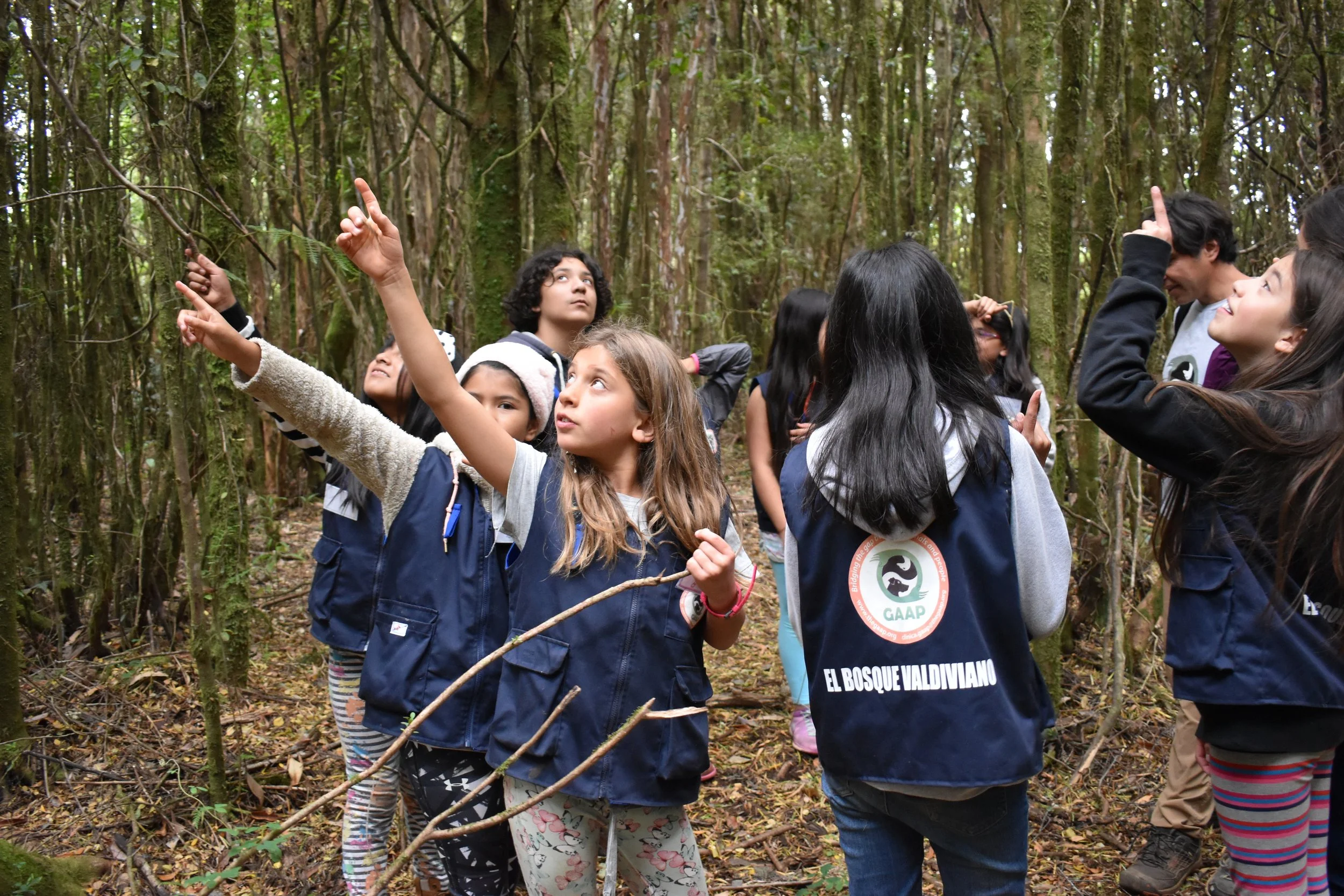

How does time spent in nature relate to One Health?
When kids build their own competencies in fun, nature-based ways, they not only become people who care about the health of animals, humans, and the environment, but also become more confident and empathetic. Our program fosters self-esteem, emotional resilience, and self-care through joyful, curiosity-driven experiences shared with peers, helping young people develop a stronger sense of belonging and a deeper connection to the natural world.

Give kids a chance to get curious and build a connection to Nature
Sources:
(1) Schilling SH, Carreño A, Tapia E, Mascayano F, Pitronello R, Santander F, Jorquera MJ, Burrone MS and Alvarado RV (2021) Experts by Experience: Qualitative Evaluation of Adolescent Participation in the Development of a Technological Intervention to Prevent Youth Suicide in Chile. Front. Psychiatry 11:522057. doi: 10.3389/fpsyt.2020.522057
(2) Reimers and Chung, 2016 – Harvard University – comparative study between six nations: Chile, China, India, Mexico, United States and Singapore.
(3) Preuß, M.; Nieuwenhuijsen, M.; Marquez, S.; Cirach, M.; Dadvand, P.; Triguero-Mas, M.; Gidlow, C.; Grazuleviciene, R.; Kruize, H.; Zijlema, W. Low Childhood Nature Exposure is Associated with Worse Mental Health in Adulthood. Int. J. Environ. Res. Public Health 2019, 16, 1809. https://doi.org/10.3390/ijerph16101809



